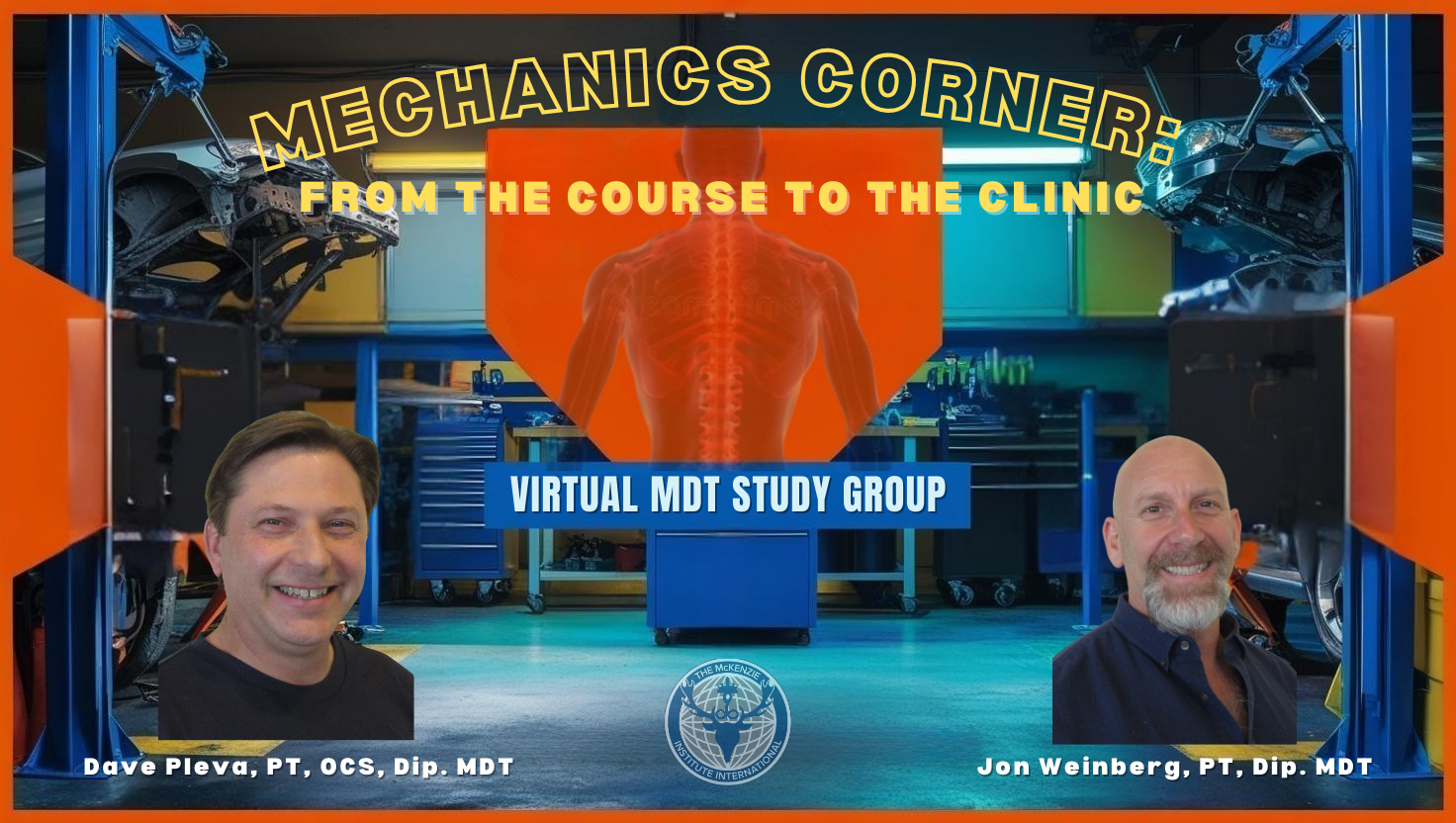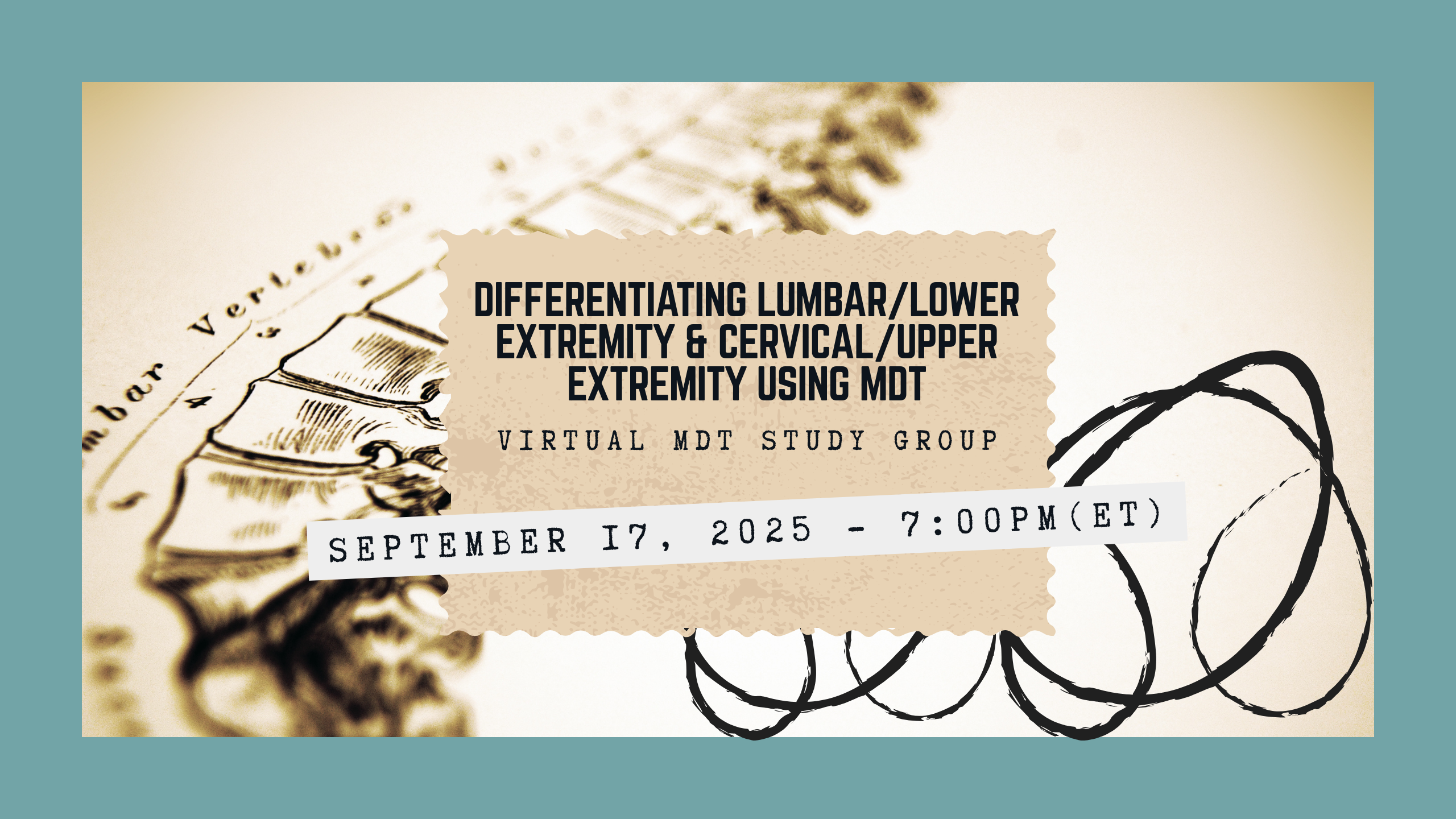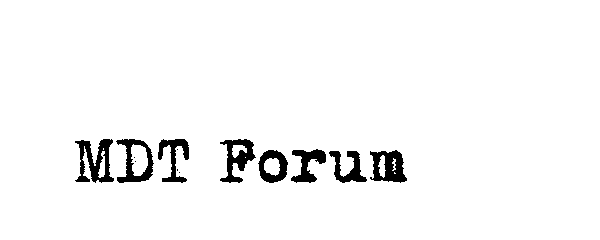Get in the Know – Join a Study Group!

VIRTUAL STUDY GROUP OPPORTUNITY!!!
Mechanics Corner: From the Course to the Clinic
Presented by MIUSA Faculty members Dave Pleva, MA, PT, OCS, Dip. MDT and Jon Weinberg, PT, Dip. MDT
A virtual study group open to clinicians that are at various points along the training program to keep them engaged and motivated throughout the MDT education process and beyond in follow-up to the courses.
NEXT SESSION:
September 17, 2025 - 7:00PM (ET)

Session Objectives:
- Accurately differentiate between lumbar spine and lower extremity conditions, as well as between cervical spine and upper extremity conditions, utilizing the Mechanical Diagnosis and Therapy (MDT) classification system.
- Differentiate between lumbar spine and sacroiliac (SI) joint pathology through clinical examination and application of the MDT framework
- Integrate the findings of the history and physical examination, including repeated movement/static testing, to differentiate and determine a provisional classification in regard to spine or extremity.
Content to be Covered:
- SI Joint
- R/o Spine
- R/o Hip
- SIJ Pain Provocation Testing: Laslett M. (2008) Evidence-Based Diagnosis and Treatment of the Painful Sacroiliac Joint. J Man Manip Ther 16:3:142-152
Format:
- 90-minute Zoom session
- 7:00pm-8:30pm EST
- Access to material for each session provided in advance, for review
- 25 max attendees
- Minimum Part A completion to register
Session Fee*:
- MIUSA Members $35
- Non-members $75
*All fees paid for this study group are non-refundable, non-transferrable and final at time of purchase.
Upcoming Study Group
Join an educational MDT study group today! 

Connect with McKenzie Institute faculty who lead discussions with clinicians who are certified in MDT or actively involved with MDT training in the LinkedIn MDT Forum.
McKenzie Study Groups
Throughout the U.S., clinicians who have begun their training and those already certified in the McKenzie Method®, have joined together to form online and local Study Groups to continue their learning of this clinically and scientifically proven method of assessing and treating the spine.
Once you have established your group, complete the Enrollment Form to have your group's details posted in the current Study Group Directory!
What study groups are available?
Click
for the current Study Group Directory.
Want to start a study group?
Click
for guidelines to get started.
Need some ideas?
Below are potential study group topics.
- Peripheral Joints
- Review of Assessment
- Patient Education
- Classification (includes Differentiation of Derangement, Entrapment, ANR)
- Anatomy
- Deformities
- Biomechanics
- Cervical Headaches
- Trauma (including physiology of healing)
- Spondylolisthesis and Stenosis
- Contraindications
- Big Picture History
- Differential Tests (Shoulder, Hip, SI)
- Non-organic
- Case Studies
- Literature review
- Modification of techniques
- Technique workshop (specify area or techniques)
- Other ideas: Guest speaker

